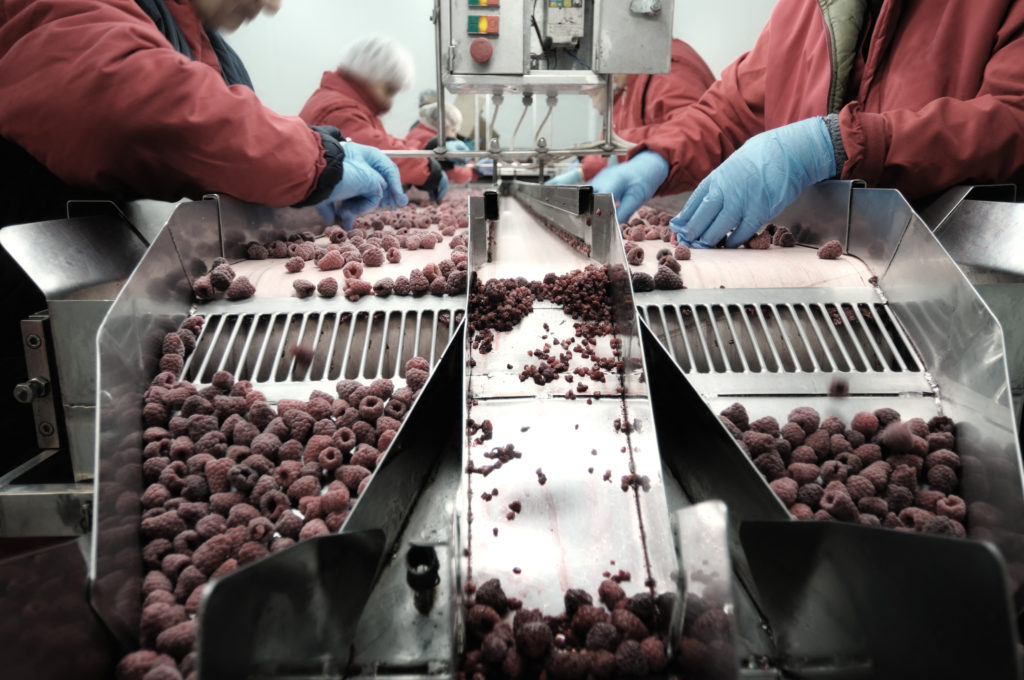Production scheduling and quality control are the top industry challenges in 2021. Food and beverage companies face increasing calls for transparency in sourcing and processing, and increased demand for eCommerce and more sustainable products.
Here’s a closer look at seven food industry supply chain challenges for 2021 and how the right Enterprise Resource Planning (ERP) solution can help.

Challenge 1: Use of Plastics
Sustainability is essential for food and beverage companies, but at the same time the industry has increased the number of single-use plastic containers being offered for ready-to-eat dining. Businesses face increased demands for sustainable, environmentally friendly packaging, from straws to cups to storage. With many plastics coming from the global marketplace, companies need to have different channels for supply, including alternative suppliers and packaging materials.
Challenge 2: Regulatory Burdens
A more stringent regulatory landscape continues to challenge the industry. On the heels of the adoption of the U.S. Food Safety and Modernization Act and Safe Food for Canadians regulations, companies now face increased food safety standards from multiple jurisdictions. Significant reporting and documentation rules cover food production, including waste disposal, food quality and traceability.
Challenge 3: Demand Forecasting
Accurate forecasting helps food and beverage companies optimize their production efficiency, reduce inventory costs, improve distribution and streamline purchasing. Demand forecasting requires accurate data to help employees make informed decisions for the future of their business.
Challenge 4: Global Visibility
Businesses need access to global supply chain options with meaningful connections to global trading partners. This will be an increasingly challenging component of production in 2021, given economic instability, geopolitical disputes and the ongoing COVID-19 threat.
Food and beverage companies need clear visibility into their operation to diversify suppliers and customers to offset the challenges of a global marketplace.
Challenge 5: Predictive Scheduling
Even without the current volatility in the supply chain, companies need to use automation and business intelligence to optimize production schedules. The right food ERP can eliminate scheduling bottlenecks, improve inventory visibility and reduce waste.
Challenge 6: eCommerce Expectations
Food and beverage companies have historically been slow to embrace eCommerce, but recent events have caused accelerated adoption. Better supply chain and logistics management are helping companies turn the corner, allowing businesses to reduce delivery times, meet consumer expectations for availability and freshness and reduce time-to-market for new products.
Challenge 7: Inventory Management
Inventory accuracy and availability are long-held challenges in the industry. With the right technologies in place, companies can address perishability, space management, traceability, assembly, scheduling and delivery complexities, resulting in less waste and rework, and leading to improved profit margins.
How to Address Supply Chain Issues with Food ERP Solutions
FoodBusiness ERP is business management software built specifically for the food and beverage industry. It contains all the functionality needed to run a successful food business, including:
- Full financial management
- Customer and supplier management
- Real-time visibility to inventory levels and cost
- Recipe management
- Demand forecasting
- Yield calculations and tracking through production
- Byproduct management
- Quality and hold management at each stage of production
- Production sequencing and allergen tracking
- Shelf-life management with expiration and use-by dates controls
- Warehouse management with barcode printing
- Full forward and backward traceability
- Product recall management
To learn how FoodBusiness ERP can help your company overcome food industry supply chain challenges, reach out to us. We’d love to chat.

